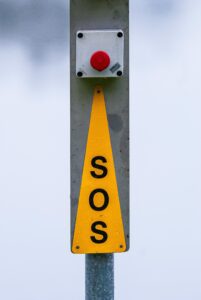 Personal Finance 101 tells us to always save for a rainy day, but as property investors, it’s more like we need to save for rainy months.
Personal Finance 101 tells us to always save for a rainy day, but as property investors, it’s more like we need to save for rainy months.
An emergency fund, also referred to as a reserves account, helps shield you from financial disaster when other types of unexpected disasters strike. And strike they will – appliances break, emergency repairs come up, or tenants unexpectedly vacate. These things all cost money, and having a financial plan in place to see you through to the other side will help keep your investment on the straight and narrow path toward success.
How Much Should You Save in Reserves?
Your emergency fund can help cover temporary gaps in income, finance one-off capital expenditures, or pay down deductibles on insurance claims, among other expenses. The tricky question is how much you should save for these unplanned and unexpected expenses.
While you’re never going to have too much in reserve, a typical rule of thumb for calculating reserves is to hold at least six months’ worth of rent in reserve for each unit you own.
We advise clients to consider six months as just a starting point when calculating emergency fund amounts. You should also keep these other considerations in mind:
- A property’s annual capital improvement needs: You can’t anticipate every expense you will encounter with a rental property, but you can make informed estimates about many components in your rental units. You do this by completing a capital spending study. Start by determining the age of all components in the property, estimate their remaining useful lifespan, and estimate their cost of replacement. Lastly, break down these costs per year. This helps you understand roughly how much you should set aside each year for capital expenditures.
- The number of units you own: If you own multiple units, you may not need to save 6 months of rent per unit, as it’s unlikely that all your units will encounter major expenses at the same time.
- Your turnover rate: If you have a high turnover rate, consider increasing your reserves. Our experience is that turnovers generally cost anywhere from 1 to 4 months of rent just for repairs and improvements. This is on top of mortgages and other recurring expenses that still need to be paid.
As you consider how much money you need to set aside in a reserve fund for your properties, keep in mind that more is always better. At least 6 months of rent per unit is a starting point, but you should consider your specific units and needs when making your calculations.
To learn more about property investing in Columbus and how a property management company like ours can help you be successful with your investment, contact us at RL Property Management.
